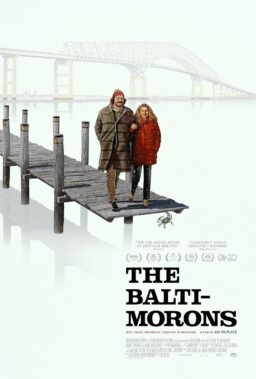Michael Kutza’s year began with a January trip to California to look at the American Film Institute’s new stuff. Then he was off to Colombia to help judge the Cartagena film festival, new movies from Latin and South America. He was back in Chicago in March for board meetings of his Chicago International Film Festival.
Then, let’s see, there was the Cannes Film Festival (“It wasn’t all that great this year. I guess I only averaged seven or eight films a day”). On to Paris for a dozen or so new French films. He skipped the Berlin film festival this year (“It’s finished; they aren’t doing anything interesting”). Back in Chicago to discuss fund-raising. Off to the Locarno film festival in Switzerland. Down to Rome for a few days, where he’s the American film critic for Il Tempo. Lunch with Fellini, who would enter “Fellini’s Casanova” in this year’s Chicago festival if it was ready in time (“But then he explained that, it would not be ready in time”).
Kutza didn’t make it this year to the Tehran film festival, which he helped found. Or to Delhi, where he’s an adviser. Or to some of his other stops of years past: Spoleto, Warsaw, Moscow, Edinburgh, London or New York. “I’ve already seen all the films in this year’s New York festival,” he explained. “Bertolucci’s ‘1900‘ was just pulled out there, and I’m trying to get it for Chicago.”
So it’s been a quiet year so far for Kutza, who figures he’s seen only about 150 movies. The busy part starts this week. First there’s the Hispanic-American Film Festival, Friday through Sept. 23 at the Uptown Theater (“We actually have Mayor Daley as our honorary chairman!”). Then on to the main event, the 12th annual Chicago International Film Festival, which plays Nov. 5-18 at the Biograph and Uptown.
Kutza’s Chicago festival has been one of the city’s recent cultural success stories. Last year’s event drew more than 80,000 patrons and made a profit of about $40,000. But success was snatched from the jaws of bankruptcy, and as recently as 1973 Kutza was announcing that the festival would fold. “It took us a long time to get established,” he remembers, “but then we started slow. Our first festival, in 1965, had 10 films. Two of them were good.”
There is a legend, I said, that you decided to found the Chicago festival after you met Orson Welles at Cannes and he promised to come here with his film “Falstaff.”
“No,” Kutza said, “that was the next year, 1966. The first year, we took almost anything we could get. The next spring I went over to Cannes to try to recruit some better films. I met Welles and told him we’d like to honor him at Chicago. ‘Chicago?’ he said. ‘Good Lord, I don’t want people to know I’m from there.'”
In the early days, Kutza recalled, he ran the festival out of his apartment. There was a staff of three, never any money in the bank, and he did free-lance graphic work on the side to stay afloat. The festival seemed to improve artistically from year to year and the audiences grew slowly while the deficits grew rapidly.
“We started in Near North theaters – the Carnegie, the Esquire, the Playboy, the Village one year,” he said. “We found an audience there, but people kept complaining that it cost them more to park their cars than to see the movies.
“In 1973, the year we were scheduled to go under, we were rescued by the University of Chicago. We held the festival on the Midway campus and up at the Devon, and suddenly people were coming out of the woodwork. We never came to a permanent understanding with the university, but we learned a lesson. The next year we went to the Granada and the Biograph, and the crowds were there.”
In the meantime, the festival’s full-time staff has grown to 10, including Judy Gaynor, the administrative director, and Suzanne McCormick, director of programming. Headquarters have been relocated to a loft building at 415 N. Dearborn that features the city’s coziest screening room (local critics previewing Kutza’s 30 to 35 annual feature selections feel toward the end of their experience like crew members on a submarine). And the festival itself is established internationally; it’s the only competitive festival in the United States, and the entries are of a high enough caliber that its Hugo awards mean something.
“It’s not difficult anymore to get films,” Kutza said. “You don’t have to explain to people why on earth they’d want to come to Chicago. We’ve made some important discoveries here – directors we introduced to America.” He mentions Sweden’s Jan Troell, whose credits include “The New Land,” Peru’s Armando Robles-Godoy whose “Mirage” plays Saturday in the Hispanic-American Film Festival; West Germany’s prolific and controversial Rainer Werner Fassbinder; Canada’s Claude Jutra (“Mon Oncle Antoine“), Yugoslavia’s bizarre genius Dusan Makavejev, and America’s Martin Scorsese, currently a star director whose first independent feature “Who’s That Knocking at My Door?” won here in 1967. Scorsese has volunteered to be on this year’s jury.
One change in the festival’s recent programming, Kutza says, is that he’s more receptive to so-called commercial films (last year’s festival opened with “One Flew Over the Cuckoo's Nest“). For many years he showed foreign art films almost exclusively.
“But I’ve come to realize we have to have a balance. We have to lure in all sorts of people, not just the college film buffs. We’ll have two Fassbinders this year but also some good things from Hollywood. We’re even going to have someone new in the way of a featured guest – Helen Rose, the costume designer. She did three of Liz Taylor’s wedding gowns.” Say you’re on vacation, I said. How many days in a row would you go without seeing a movie?
“Two or three at the most,” Kutza said. “But then I never watch television.”











